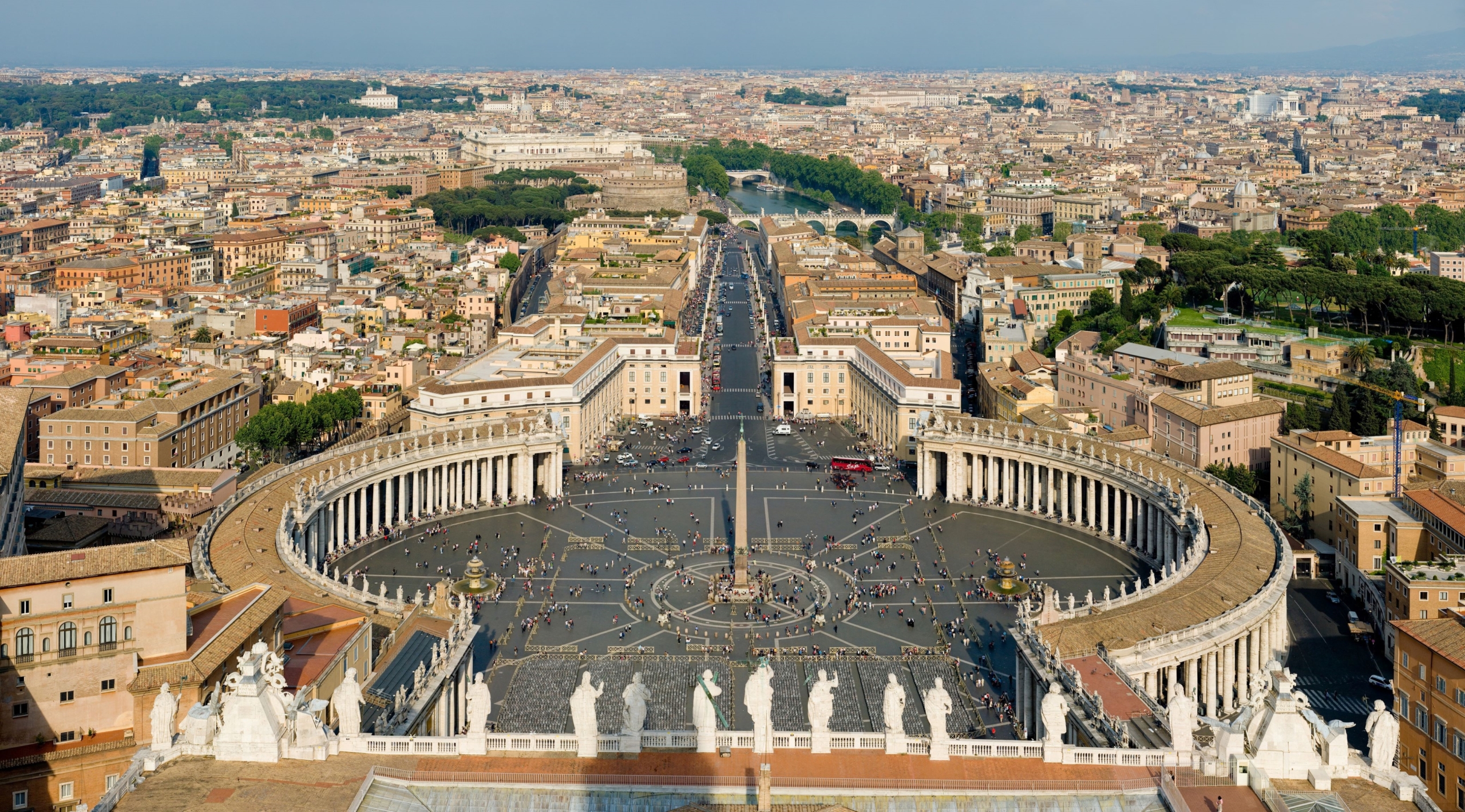“All of this is because a fisherman died here,” said my then friend, now fellow Dominican Brother, as we stood atop St. Peter’s Basilica in Rome. It is true. The fisherman from Galilee, buried 450 feet below us, was certainly not wise by human standards, powerful, nor well born. (1 Cor 1:26). He was not preserved from serious sins like Mary, John the Baptist, or John the Evangelist. This was the disciple who denied Our Lord three times (Luke 22:54–61). Nonetheless, our Lord still called Simon son of Jonah. He built his Church on him and gave him the keys to the Kingdom of Heaven (Matt 16:17–18). He told him to feed his sheep and foretold his martyrdom on the Vatican hill (John 21:15–19). This calling and the grace our Lord gave to this weak fisherman turned him into a strong fisher of men, and shepherd of souls.
From the top of St. Peter’s we could also see another massive basilica down the Tiber. This one does not house the bones of a fisherman. Rather, it is built over the tomb of a radical first century pharisee (Phil 3:4–6). A man not even fit to be called an apostle because he persecuted the Church of God (1 Cor 15:9). A man who consented to the execution of St. Stephen (Acts 8:1) and tried to destroy the Church (Gal 1:13). Yet this man, this sinner, was chosen by God’s grace. This man was struck down on the road to Damascus (Acts 9:1–9), and encountered the Risen Lord (Gal 1:12). These two men, one uneducated and ordinary (Acts 4:13), and the other an enemy of God (Rom 5:10), were reconciled to God! They became Peter, the rock on which the Church is built (Matt 16:17) and Paul, God’s chosen instrument (Acts 9:15).
These two sinners-turned-saints are useless on their own. Peter is not the rock of his own Church; he is the rock on which Christ builds his Church. So too Paul, as a chosen instrument of grace, is nothing without someone to use the instrument, namely Christ. These two men remind us that without God we can do nothing (John 15:5). For these men are apostles only because Jesus is “the apostle and high priest of our confession” (Heb 3:1). They are bishops and shepherds only because Jesus is “the shepherd and bishop of our souls” (1 Pet 2:25).
Despite their sins, despite their mediocrity, God did amazing things with these two men. God made them like Jesus. God used their suffering to “fill up what is lacking in the afflictions of Christ on behalf of his body, which is the church”(Col 1:24). He made them a spectacle to the world, being hungry and thirsty, naked, roughly treated, homeless, and toiling (1 Cor 4:11–12). He made them like Jesus who had nowhere to rest his head (Matt 8:20). God took these men and conformed them to Jesus Christ, using them to bring his gospel to the ends of the earth (Ps 19:4). This conformity to Jesus went deep; he even gave Paul his marks on his body (Gal 6:17).
In the end this transformation, begun on the beach in Galilee and on the road to Damascus, ended in Rome. Peter was so configured to the cross of Christ, that he, like the savior, was crucified. So too Paul was executed in the same city by beheading. However, their martyrdom was not merely the result of their work in the Lord’s vineyard. The grace of final perseverance was a gift, but it was not only a gift for these blessed Apostles. This final grace given to Peter and Paul extends to you and me! The same grace God used to save them, he now uses through them to save us. So that just as their voices went out through all the world in their earthly life, their prayers in heaven now bring us the graces of Jesus Christ!
Tomorrow the Church celebrates the principal feast of these heavenly patrons. Let us turn to them as our fathers and sources of Sacred Scripture and the Tradition of the Church. But more than that, let us turn to them because they are reigning in heaven! The rock still supports the Church, and the chosen instrument still intercedes for men.
✠
Photo by David Iliff (CC BY-SA 3.0)







